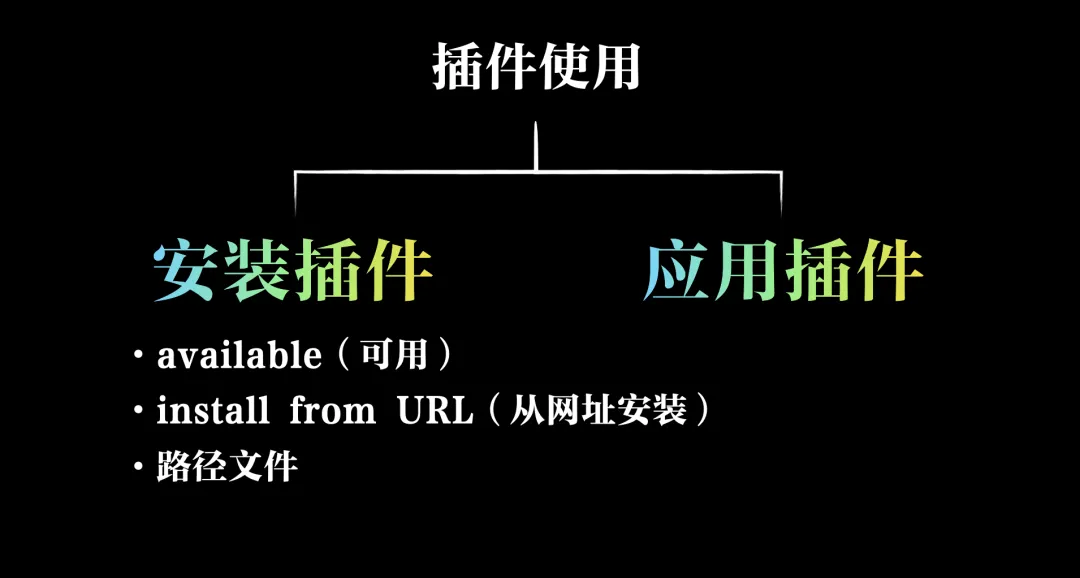Preface
This article is aboutStable DiffusionofPluginsInstallation tutorial.
How to use plugins: installation + application
Let's take the Chinese plug-in as an example to demonstrate how to install the plug-in in SD. Currently, the one-click installation package or cloud deployment on the market basically has built-in Chinese plug-ins. But some students may see the original English version when they just open the webUI. So I still want to share how to install the Chinese plug-in.
It is mainly divided into the following two steps:Install the pluginandApplication plugins.
There are three ways to install plugins. Let's look at them one by one.
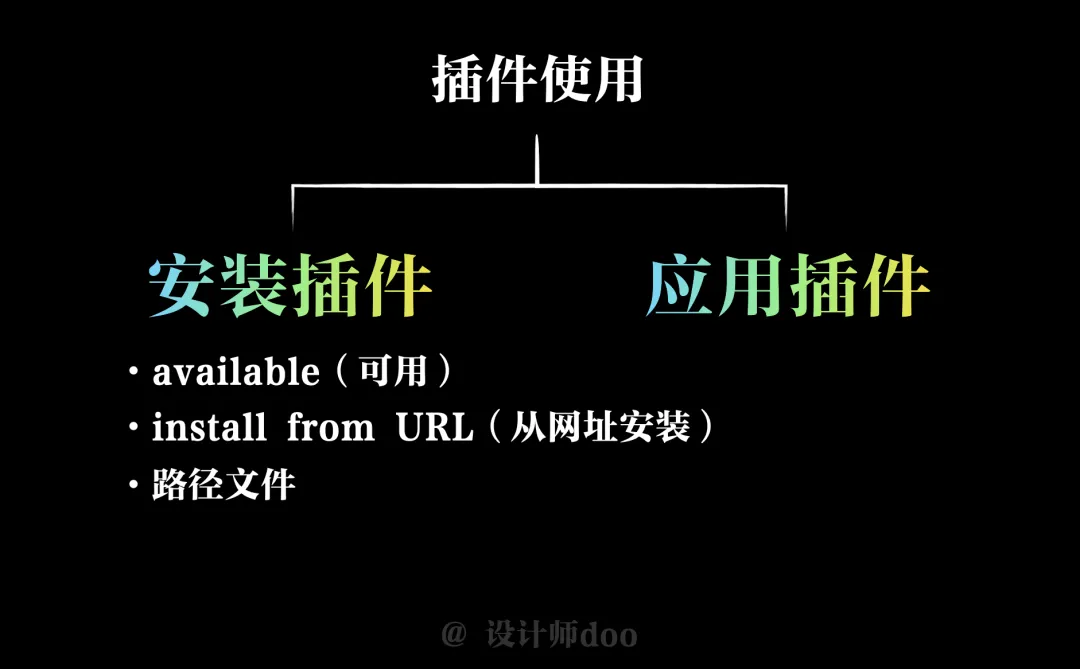
extensions
Come to the webUI interface.
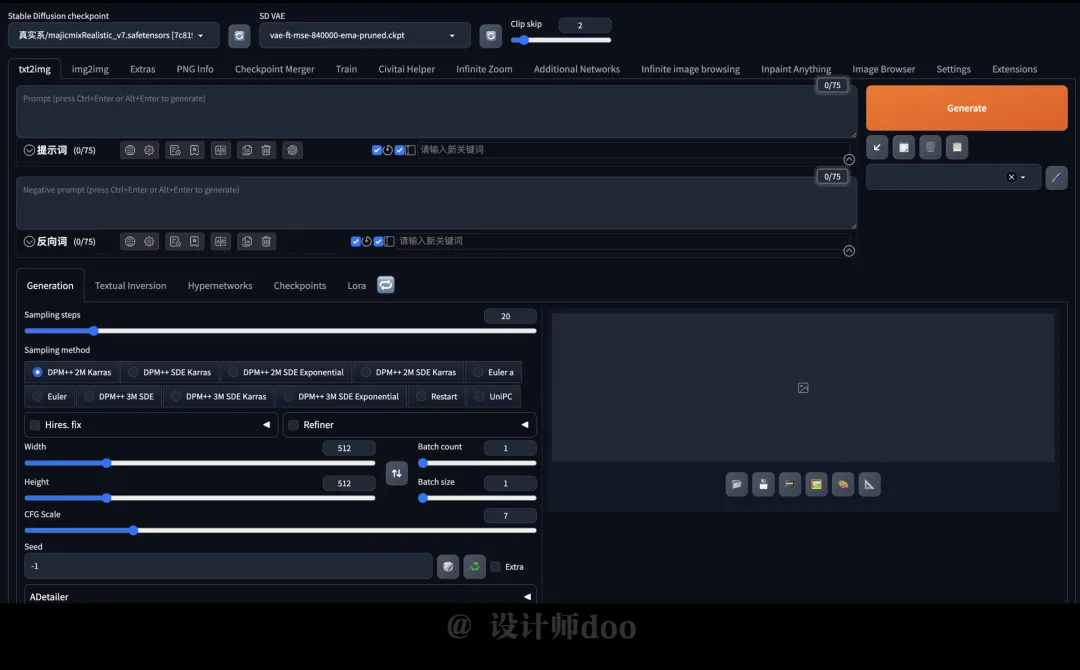
There is an "extensions" plugin entry in the upper right corner of the interface. All plugin-related content is under this tab. Click it to enter the plugin management page.
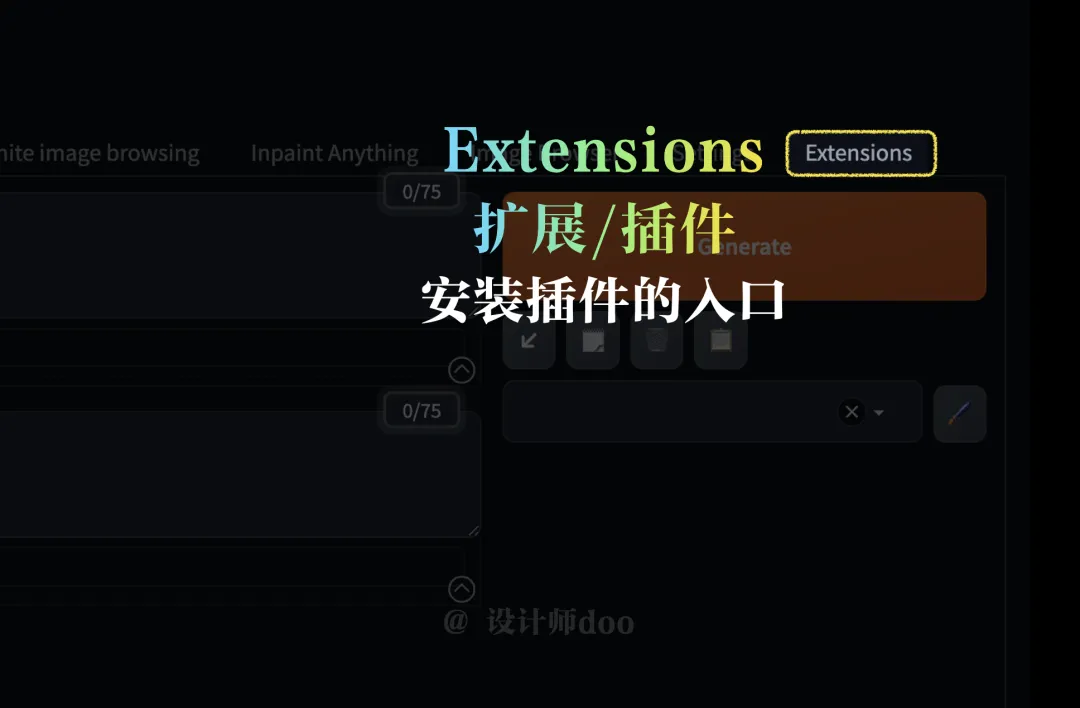
The 4 tabs in the plugin page
After entering the plugin page, you can see these 4 tabs at the top of the page. They are "Installed", "Downloadable", "Download from URL", and "Backup/Restore". The second and third tabs are related to the installation of the plugin.
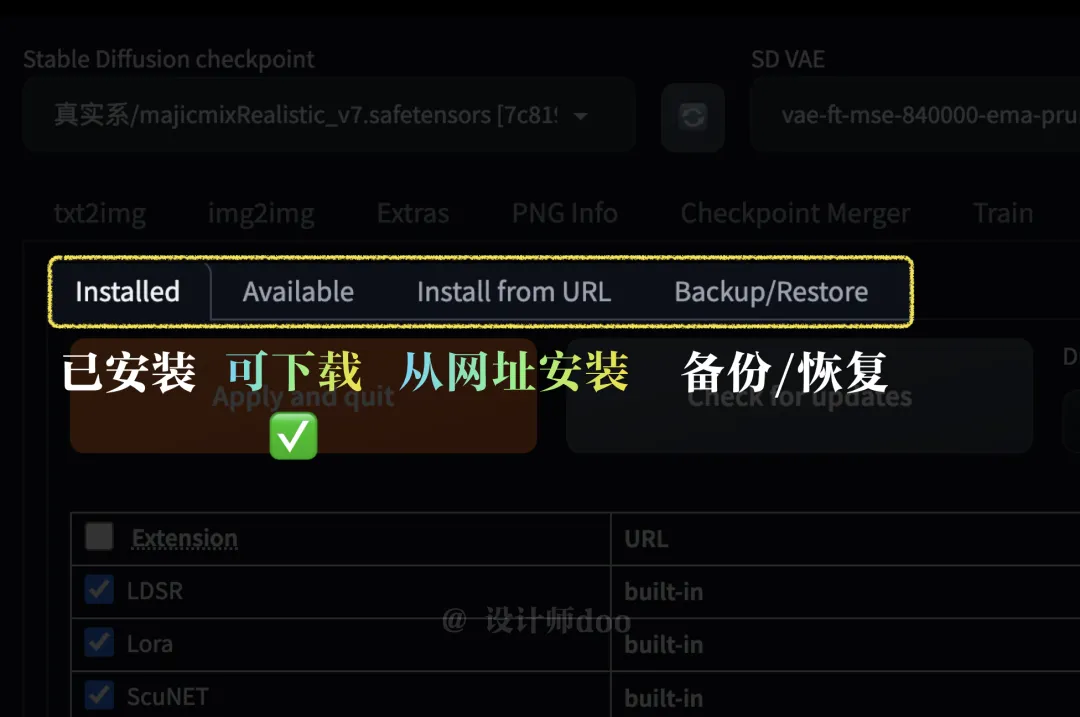
Download plugin method 1: available (downloadable)
The first way to download plugins is under the "Available" tab. Click the orange button on the page to load the plugin list.
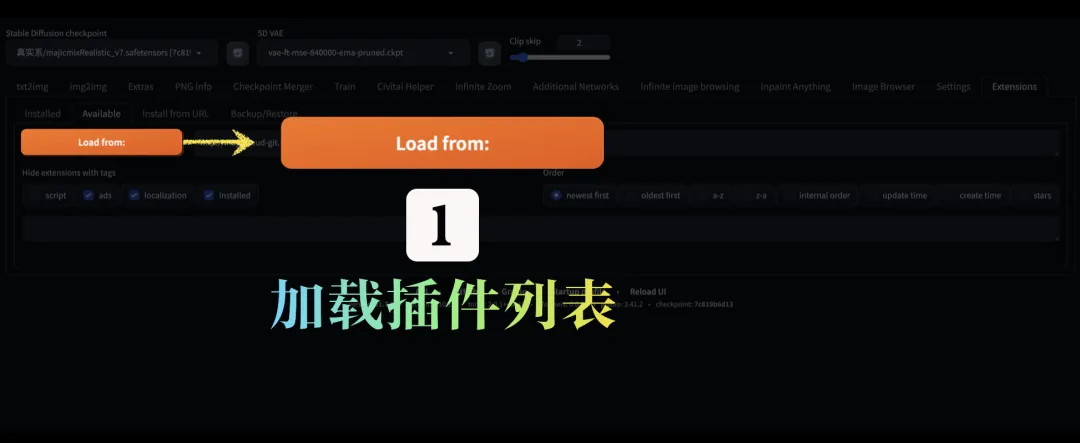
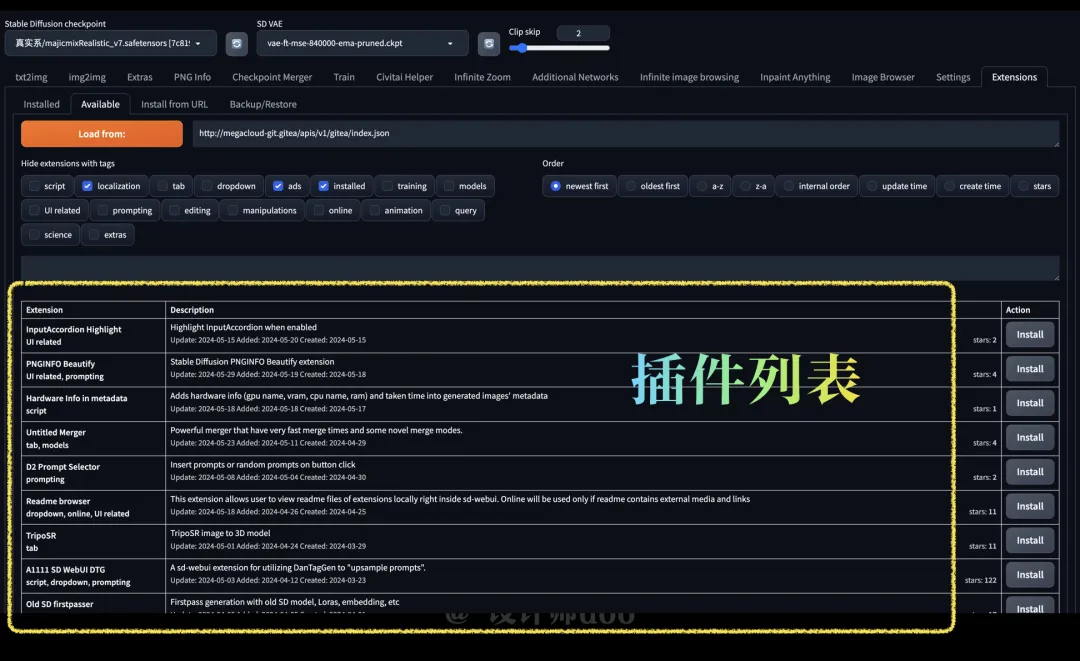
Then enter "zh" in the search box in the middle of the page and press Enter to send.
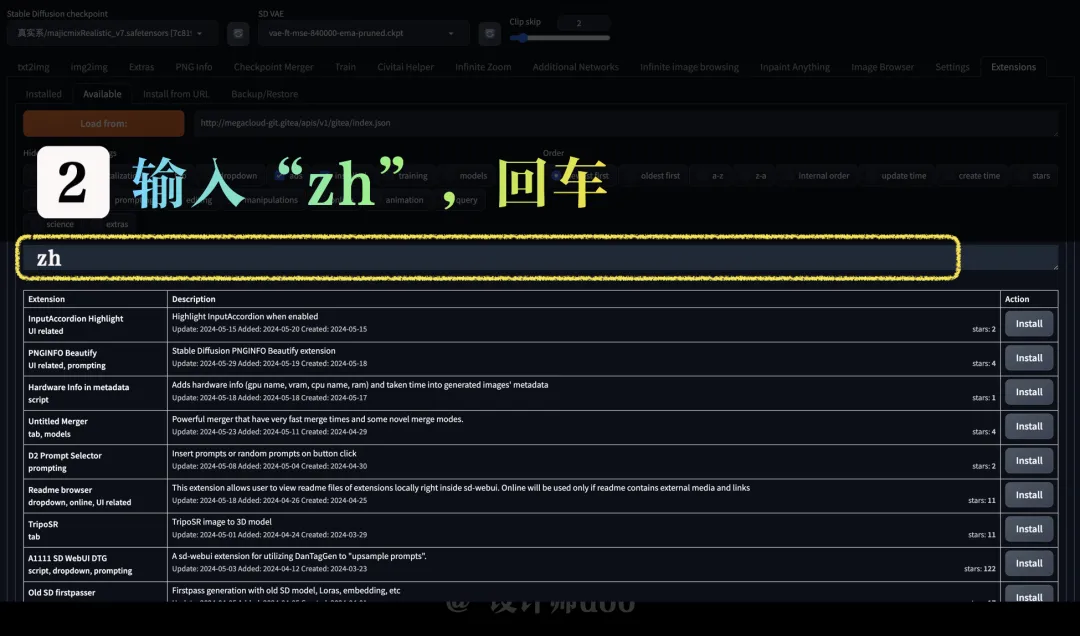
Note that in the filter conditions, uncheck "localization" and "installed".
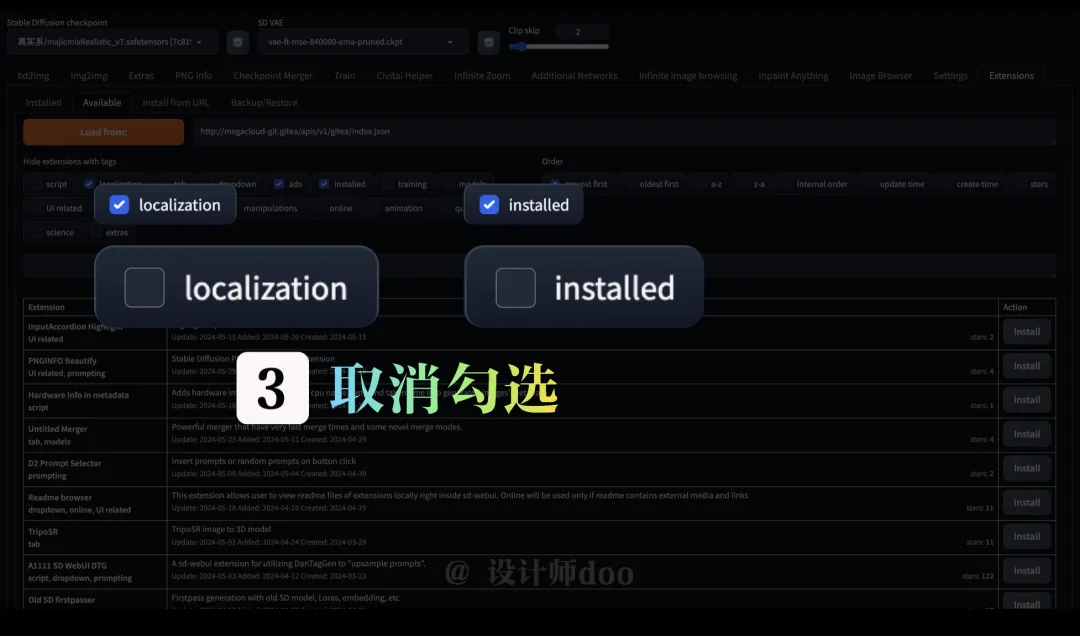
Then we will see four plug-in results related to Chinese translation in the search results below.
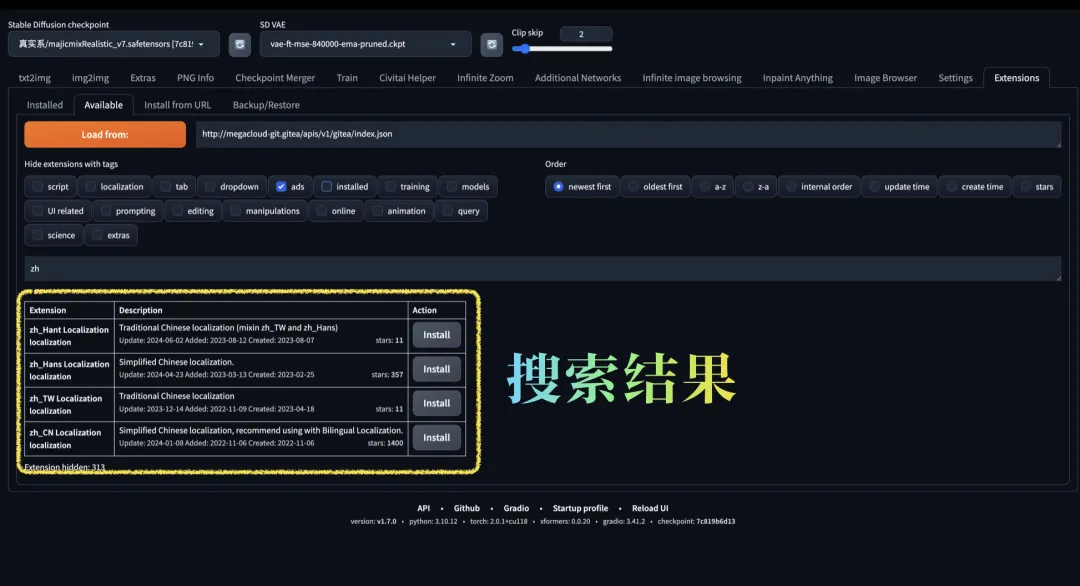
The more stars there are, the better the rating of this plug-in is. The "install button" at the back means that this plug-in has not been installed yet. If it shows "installed", it means that this plug-in has been installed.
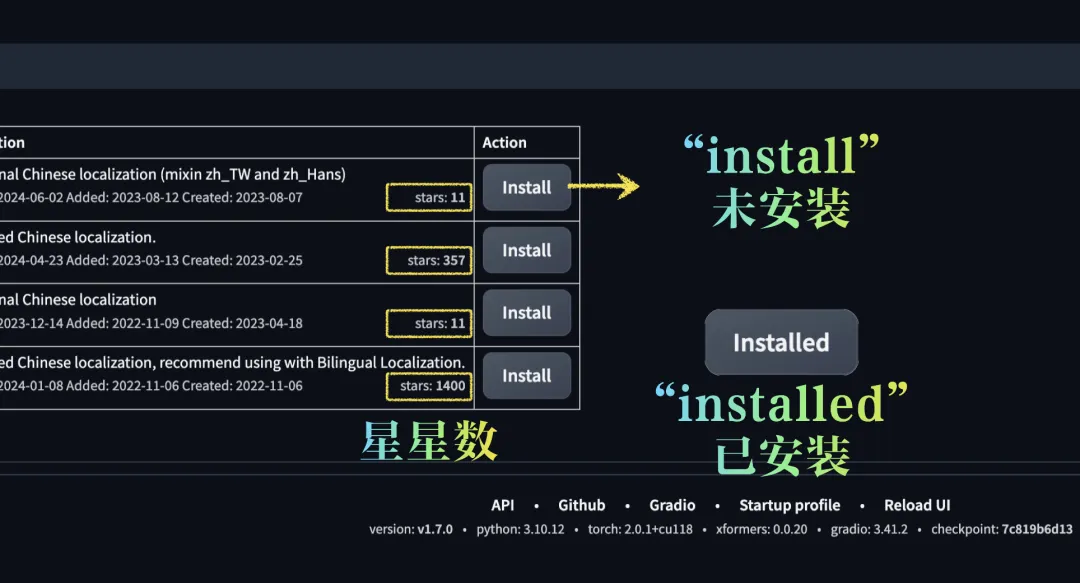
We can choose a Chinese plug-in with good reviews to install and click the install button.
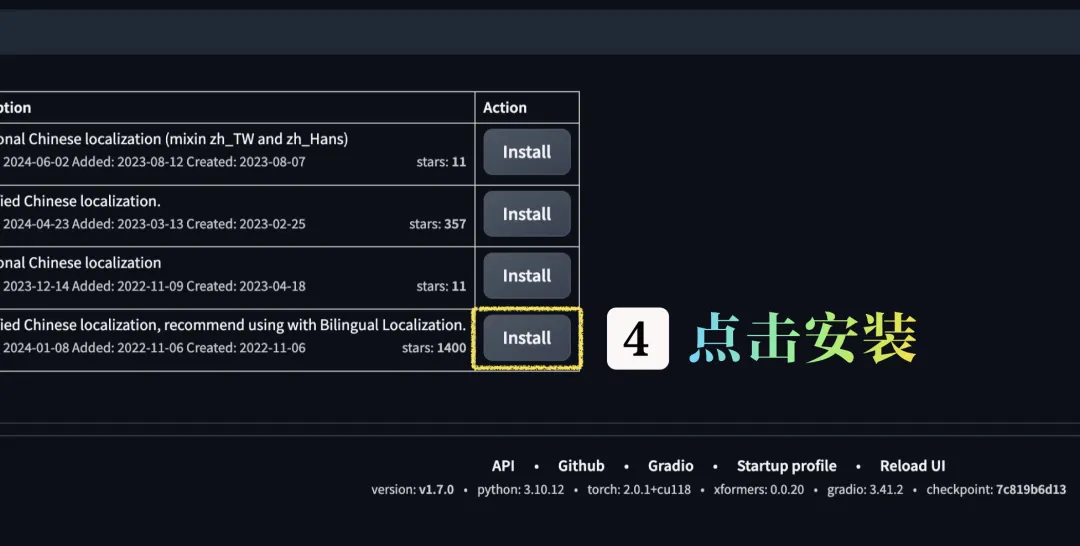
Wait for a while until the loading is complete. We can see that the status of the plug-in has changed to installed, which means the installation is successful.
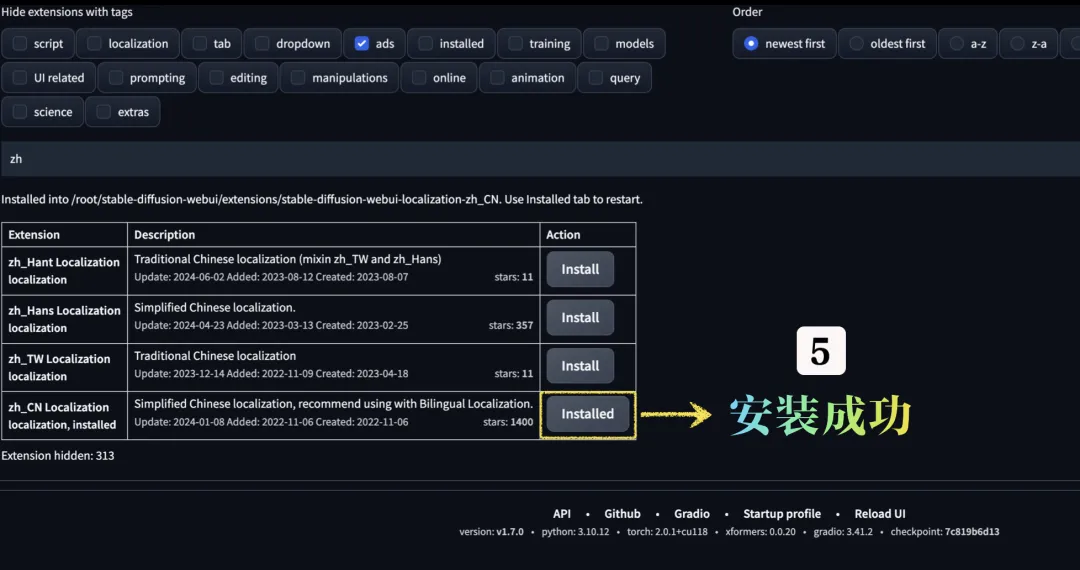
Download plugin method 2: install for URL (install from URL)
Another way to download is to click "install from URL".
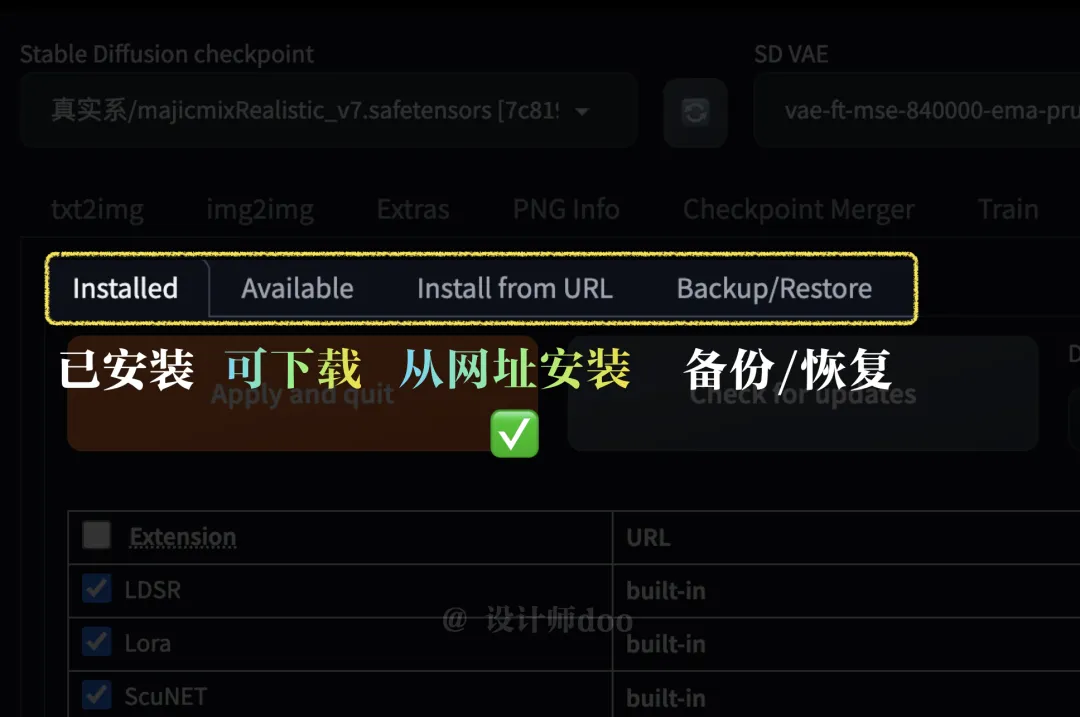
At the top of the page, you can see an input box where you can enter the GitHub address corresponding to the plugin.
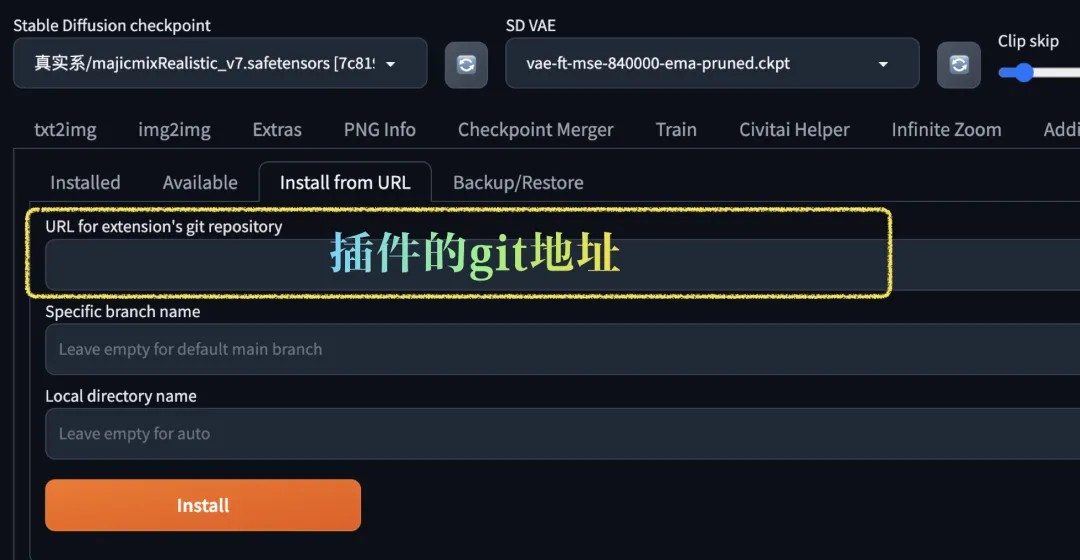
We can go to the official GitHub website (https://github.com/) and enter the name of the plugin in the input box to see the corresponding search results.
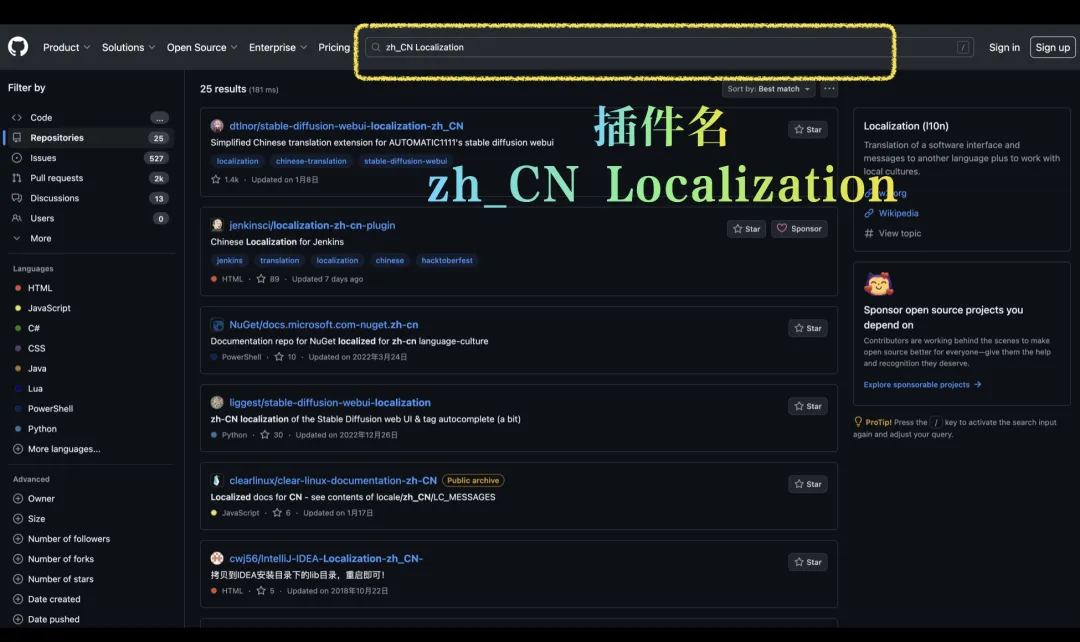
Click the corresponding plug-in to enter the plug-in details page.
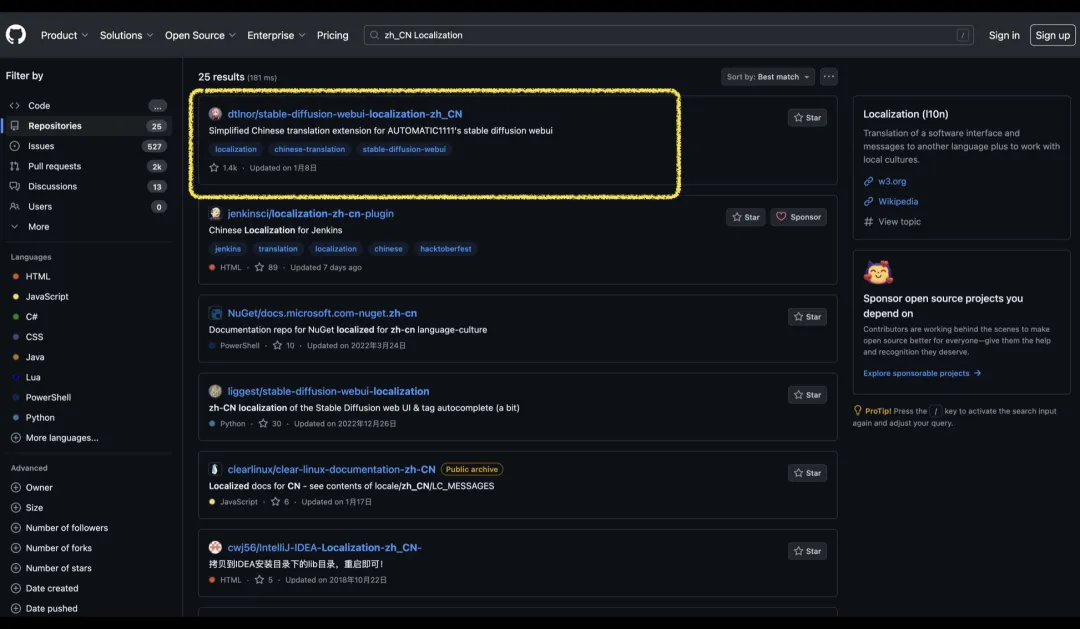
Copy the plugin's URL.
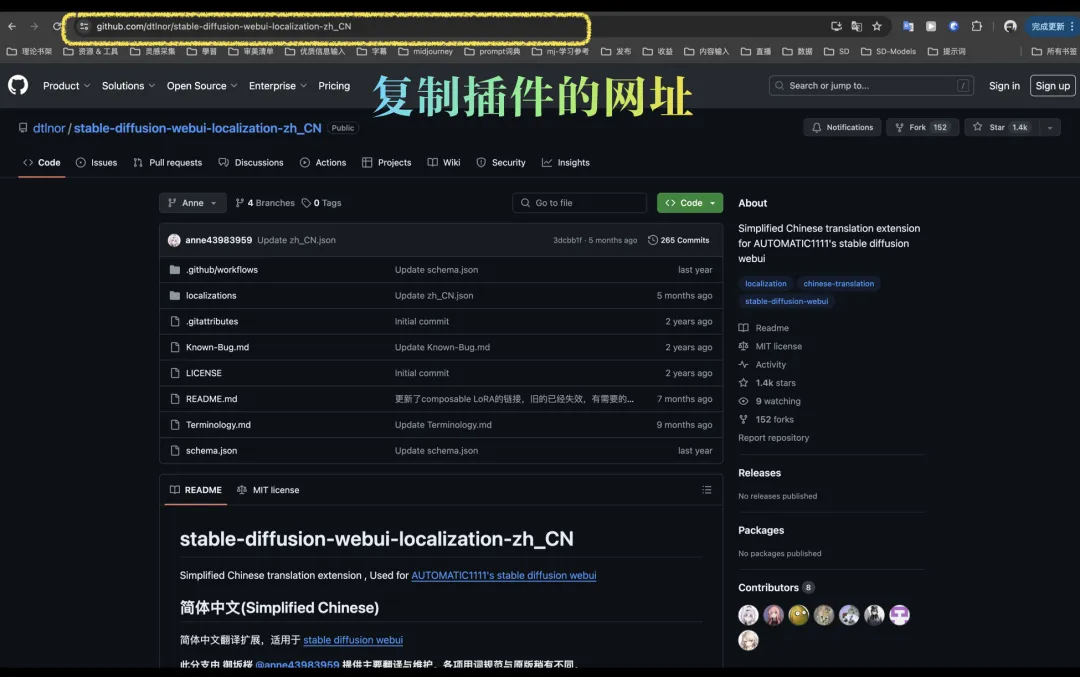
Paste it into the plug-in address bar and click the orange button below to install it.
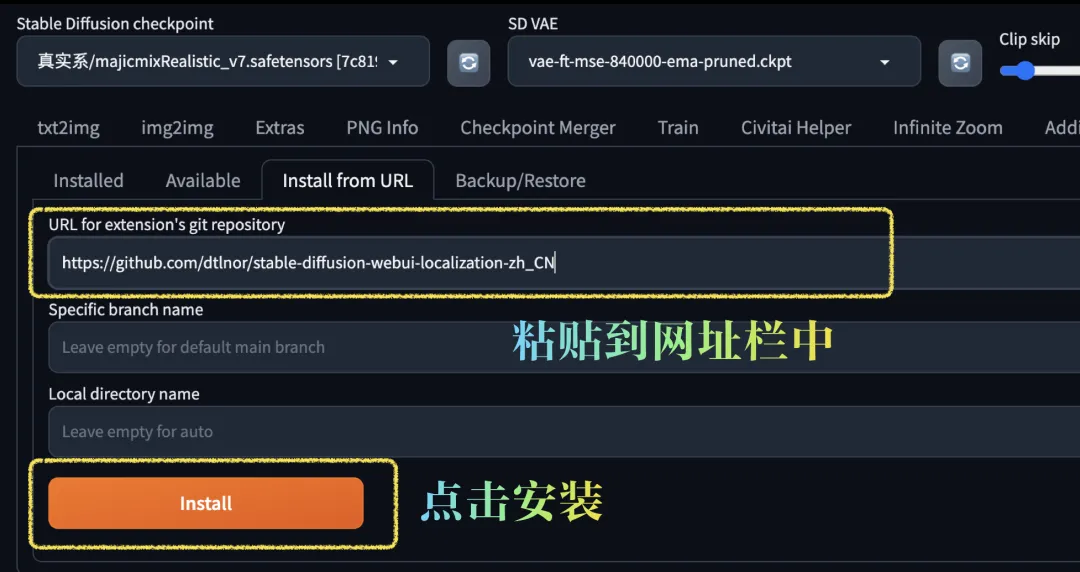
Download plugin method 3: Directly download the plugin installation package and put it into the corresponding path folder
On the GitHub plugin page just now, click the green code button and select the plugin to download the compressed package.


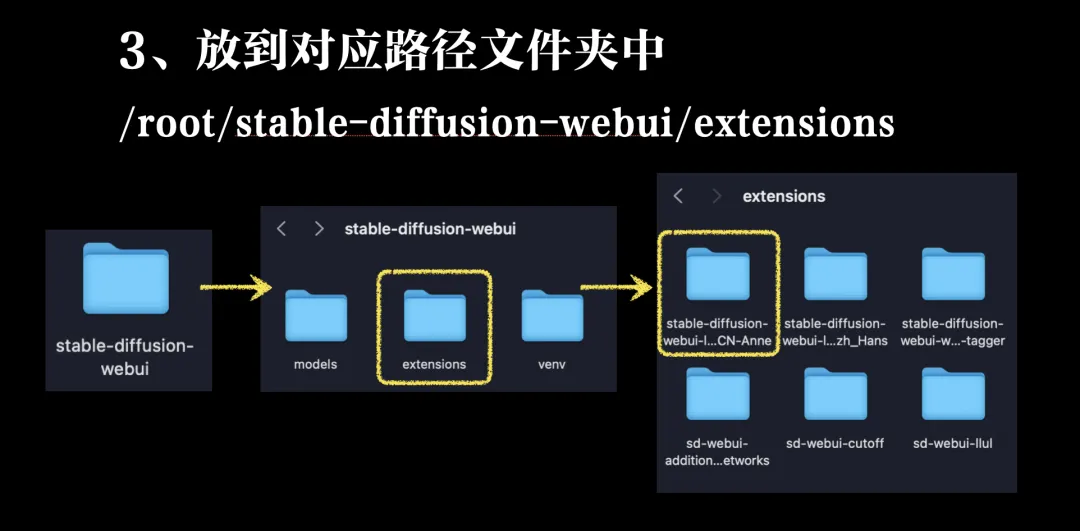
After the download is complete, double-click to decompress it, and put the decompressed folder into the corresponding webui path. See the picture above for the specific location.
For students who use cloud deployment, the method of installing plug-ins is the same. Download the plug-in and upload it to the corresponding plug-in folder.
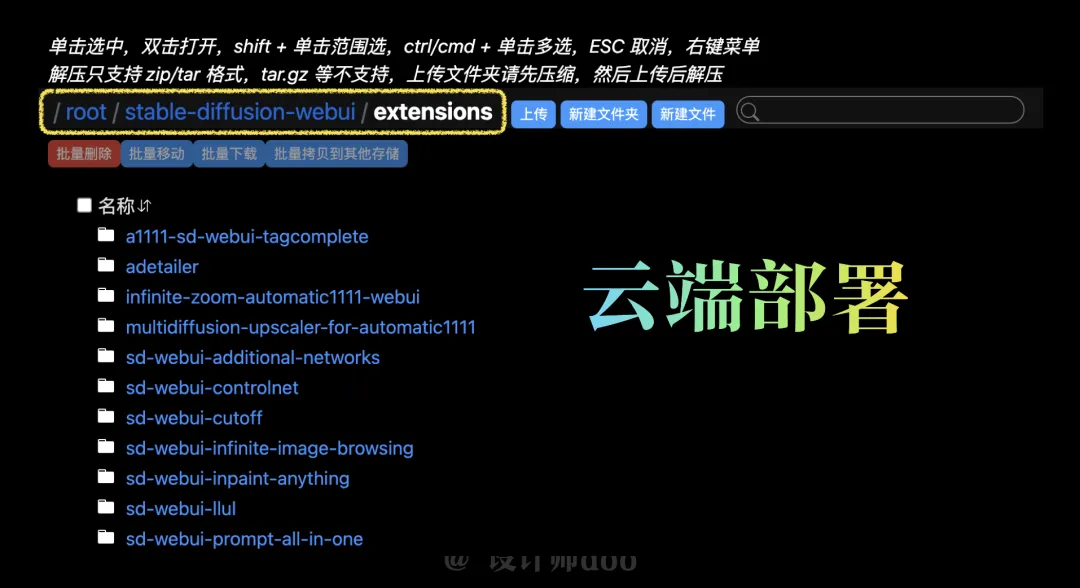
The plugin has been installed
We return to the plugin management page of the web UI and click the first "install" tab.
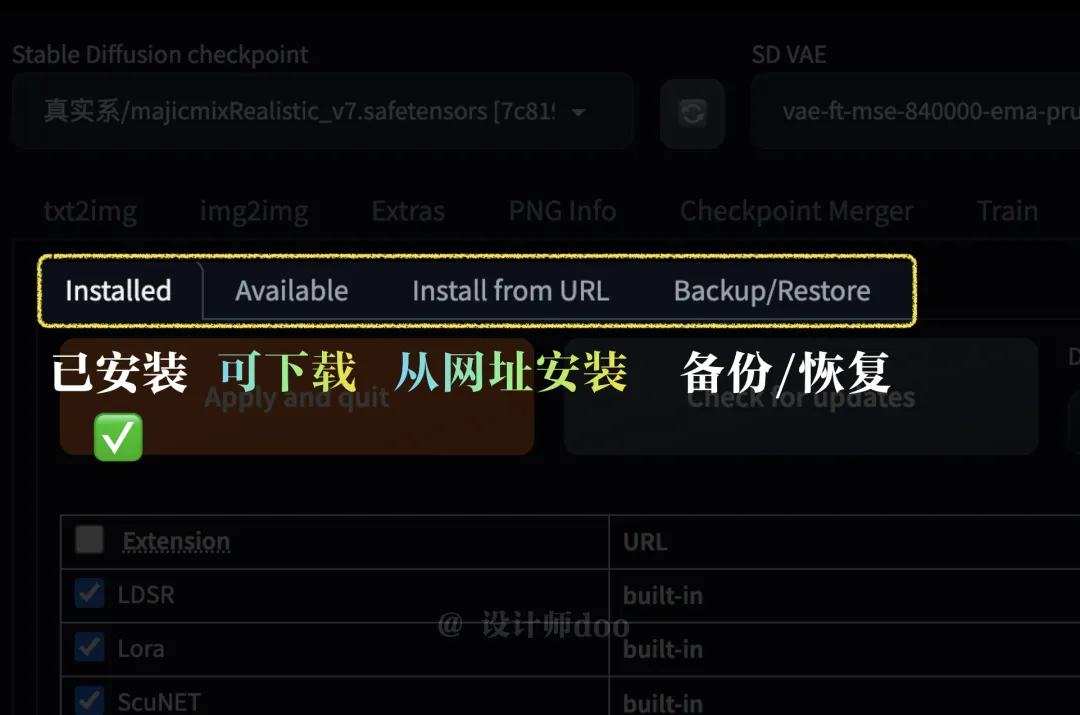
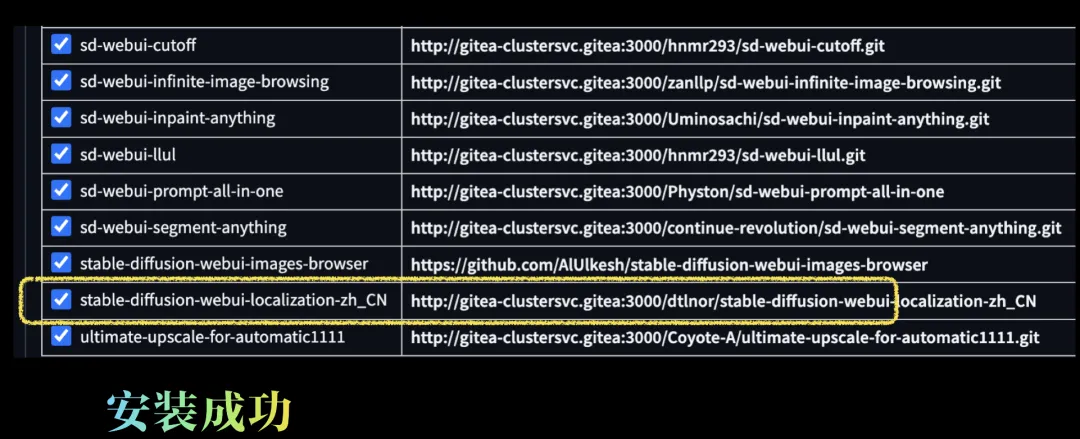
You can find the Chinese plug-in we installed in the list of installed plug-ins, which means the installation has been successful.
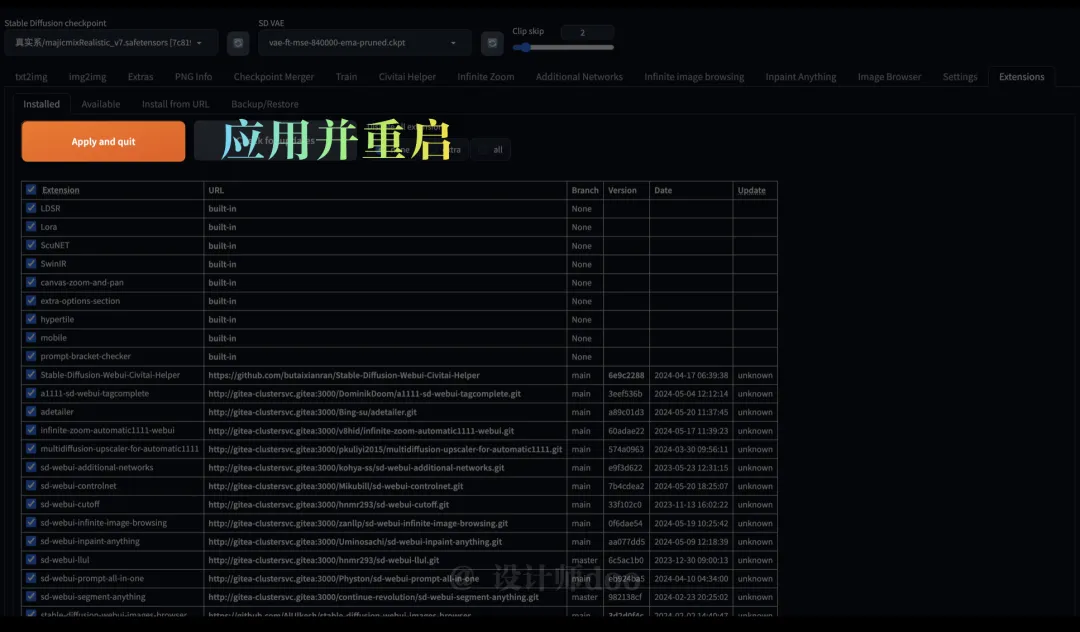
Click the orange button at the top of the page to apply and restart the webUI.
Application plugins
So far, the plug-in has been successfully installed, but it is not over yet, we need to apply the plug-in.
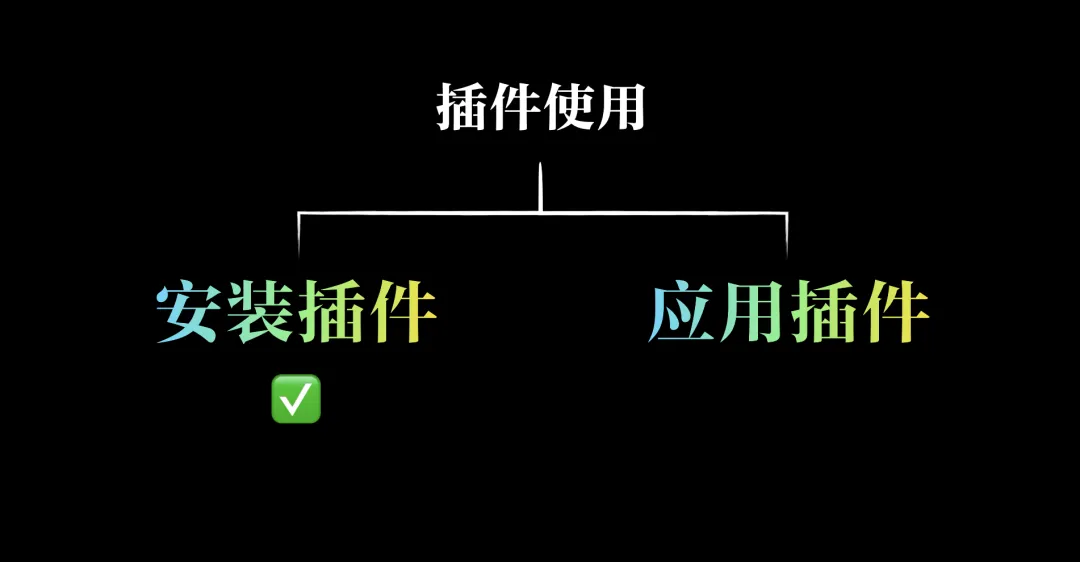
In the upper right corner of the Web UI page, click Settings to enter the settings management page.
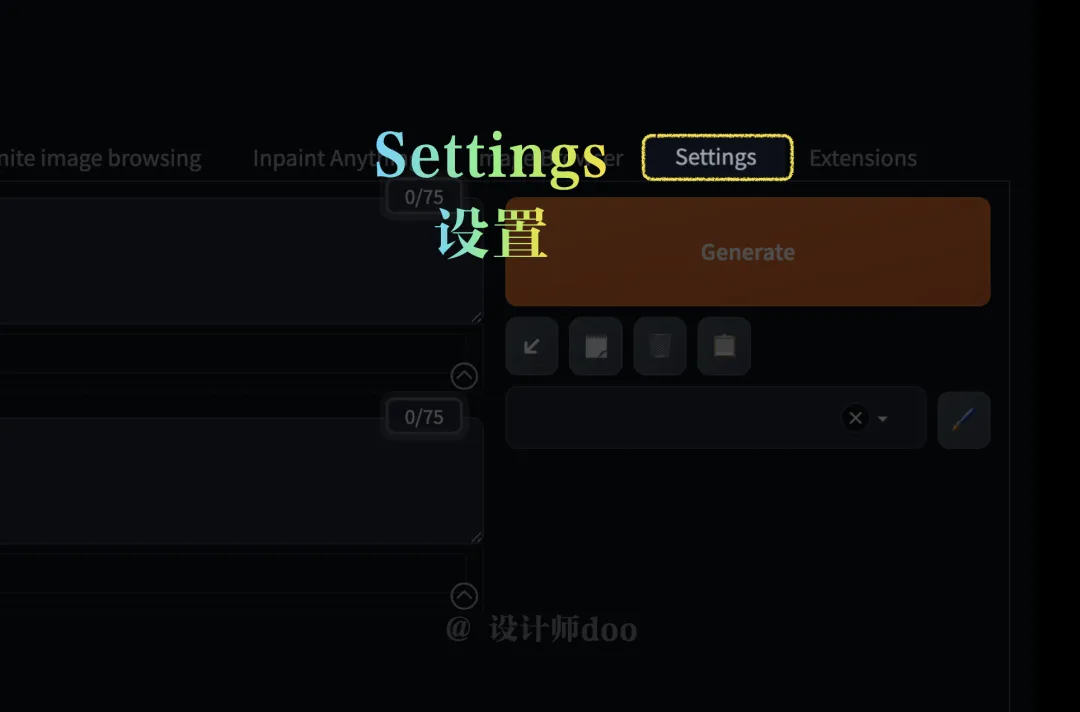
In the menu bar on the left side of the page, scroll down and find the "user interface" tab.
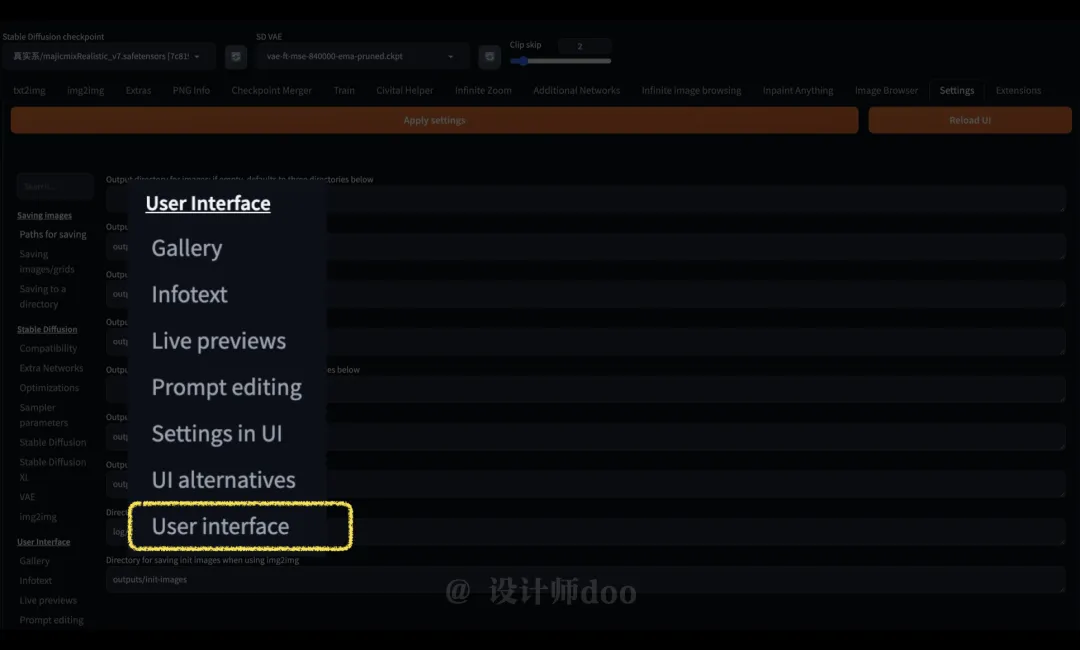
In the drop-down menu at the top, select our Chinese plug-in. If you don’t see the corresponding option here, just click the refresh button at the back.
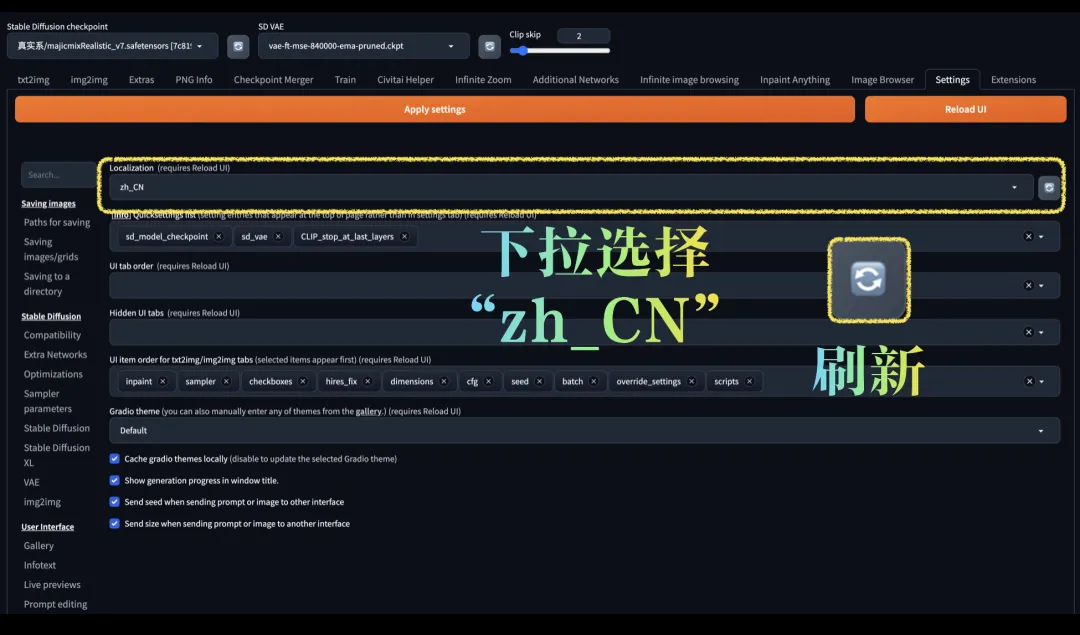
Finally, click the Save Settings button at the top of the page and click Restart Web UI.
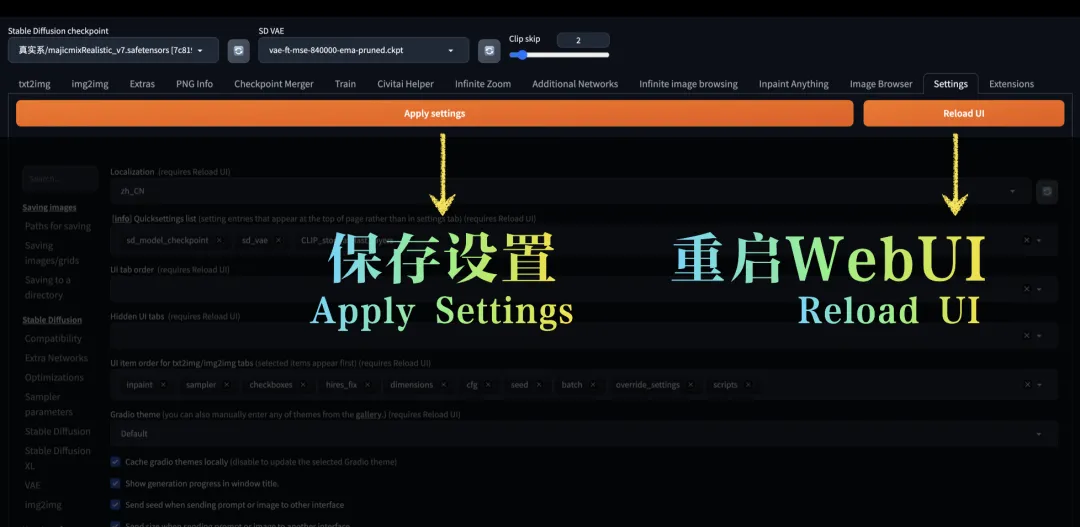
Reload the webUI and you will see that the page has been translated into Chinese.
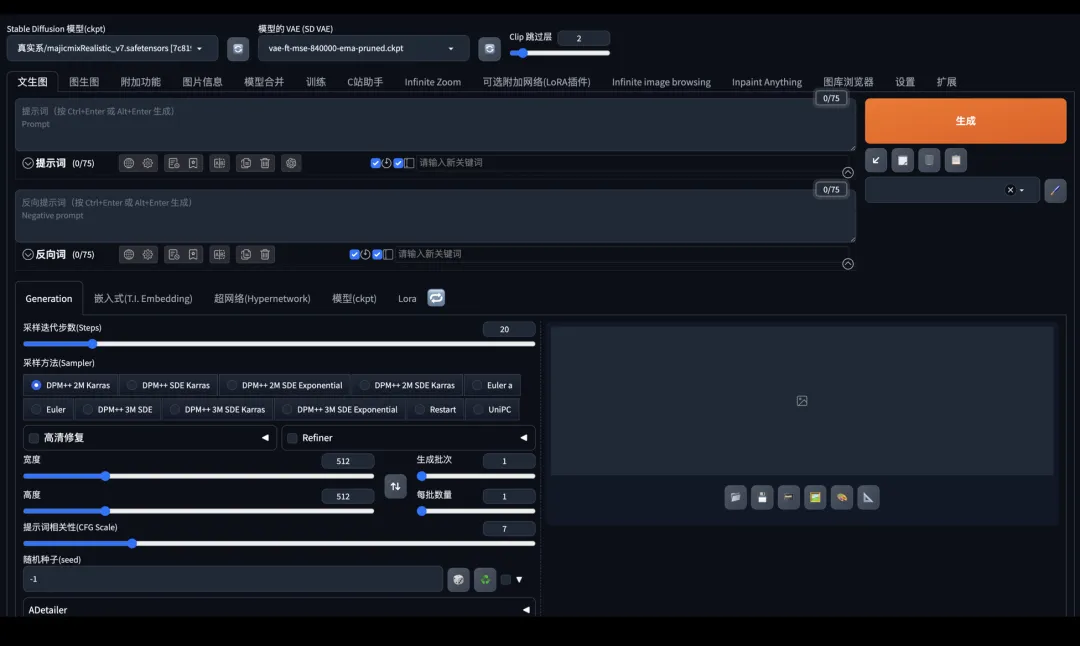
Summarize
These are the three ways to install plugins, namely "Available", "Install from URL" and download files and store them in the corresponding path. In the future, we will use many practical SD plugins, all of which are installed in the same way.
